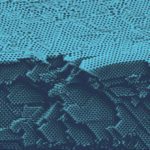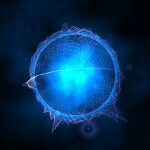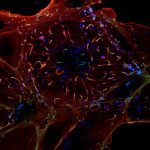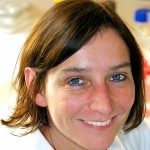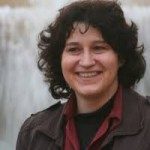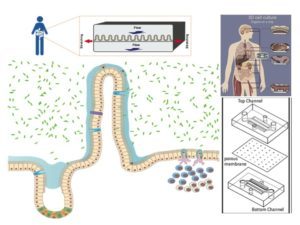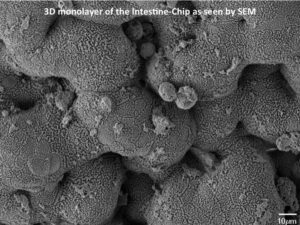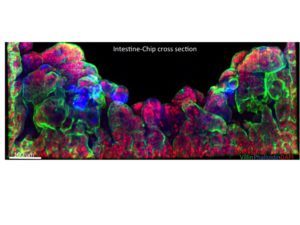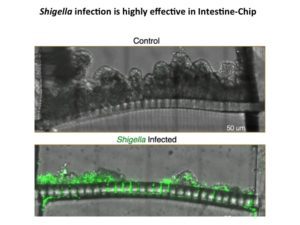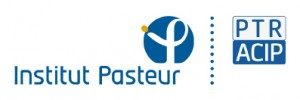Présentation
The intestine, and in particular the colon, comprising a mucus blanket, an epithelial monolayer and the lamina propria rich in immune cells, is constantly subjected to shear stress (flow) and peristaltic motion (stretching), both forces being important for the tissue organization and renewal. Altogether these cells layers cooperate to form a homogeneous and protective barrier facing the external side (from the lumen). This complex and heterogeneous microenvironment generates a wealth of “ecological niches” permanently exposed to microorganisms that can be beneficial (microbiota) or damageable (enteric pathogens). As a result, intestinal homeostasis is very complex and often invalidated, leading to a long list of enteric diseases, ranging from inflammatory, cancer, to infectious diseases, which are still far from being understood at the tissue level. In this project, we aim to decipher the impact of mechanical forces on the integrity of the gut barrier.
-Gut-on-chip to recapitulate human intestine physiology (3D and mechanical stimulation).
-Use of gut-on-chips to investigate host-pathogen interactions with several microbes: Shigella, Amoeba, Norovirus, Cryptosporidium to better chacarteirze infectious process at the tissue level and replace animal experimentation.
-Building a computational framework able to follow the dynamics (in space and time) of intestinal infections in 3D tissues with Intestine-Chips and characterizing the effect of mechanical forces on plasma membrane stiffness or on intercellular junction integrity (PTR232-2019, collaboration with E. Labruyère-JC Olivo-Marin).
-Human colon tissues to generate colon-on-chip (from colonoscopy, personalised medicine, Collaboration with G. Nigro).
-Use of colon-on-chip to unravel colorectal cancer (CRC) with Gold NanoParticules (GNPs): in collaboration with Torskal that produces GNPs we aim at recapitulating a colon having healthy and cancers cells from patients to study the endocytosis of GNPs in cancer cells and then destroy specifically cancer cells by photothermal therapy or irradiation.
Associated Publication:
Grassart A, Malardé V, Gobaa S, Sartori-Rupp A, Kerns J, Karalis K, Marteyn B, Sansonetti PJ and N Sauvonnet. Bioengineered Human Organ-on-Chip Reveals Intestinal Microenvironment and Mechanical Forces Impacting Shigella Infection. Cell Host and Microbe. 2019, Sep 11;26(3):435-444.

